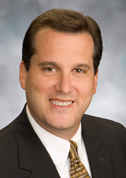© 2015 The Texas Lawbook.
By Natalie Posgate
(April 8) – A Dallas judge on Wednesday ordered two local companies and its owner to pay Austin-based Growtheorem $6.4 million for wrongfully cutting the consulting company out of a deal that caused it to lose out on commissions it claimed the defendants had promised it.
The final judgment follows a March 19 jury verdict in favor of Growtheorem and its team of lawyers from Greenberg Traurig. In Wednesday’s hearing, state District Judge Eric Moyé also denied the defendants’ motion for judgment notwithstanding the verdict.
Lawyers for Growtheorem said it was significant that they were not only able to prove at trial that the two defendant companies, Talon Transaction Technologies and NexPay, were liable; they also proved that the “corporate veil” had been pierced and the companies’ owner was individually liable as well.
Finding an individual liable in a business dispute is a somewhat rare feat in Texas case law today – especially when a case has breach of contract claims – because legislative amendments to the law over the past couple of decades have made it more difficult for plaintiffs to prove the individual’s liability.

“Companies can come and go, but the owner who is in charge and the mastermind and the reason for the whole litigation was ultimately liable, and the jury found the evidence to agree with that,” said Bina Palnitkar, an associate in Greenberg Traurig’s Dallas office who led the trial for Growtheorem.
Dallas attorney Darrell Cook, who represented Talon, NexPay, and their owner, David Gillman, could not be reached for comment.
The case was extra special for Palnitkar, a sixth-year associate in Greenberg Traurig’s Dallas office, because it was the first one in her career to make it to a jury trial.
“Our clients waited three long years to get money that was owed to them,” Palnitkar said. “Three years of heartache, stress… time they could be spending on other activities [instead spent] on litigation, which is an unknown [outcome].”
Growtheorem sued Talon, NexPay and their owner, David Gillman, in 2013, a year after Talon terminated its contract with the Austin consulting company.
Talon and Growtheorem originally entered a contract in 2007 so that Growtheorem could help find customers for Talon, a financial services company that had developed technology to facilitate payments to health care professionals from the health care claim payers, such as insurance companies, pharmacy benefit managers and third-party administrators.
Talon’s product advanced the technology from the traditional payment via checks to electronic, credit card-type transactions, which significantly sped up the payment process for those who used the business.
Under the contract, Growtheorem agreed to introduce its numerous health care contacts to Talon. In return, Talon agreed to pay Growtheorem a commission for any business it gained as a result of the introductions. Even if either party terminated the contract, Growtheorem was still to receive commission from Talon if it continued to retain customers originally introduced by Growtheorem, court documents say.
In March 2012, Growtheorem stopped receiving payments from Talon, and after “repeated inquiries,” Talon and Gillman sent a letter to Growtheorem that said it would cease all payments that were established in the contract, a court document says.
Meanwhile, Gillman created a new payment transmissions entity called NexPay, which Growtheorem’s lawyers argued provided services identical to Talon, and began transferring Talon customers introduced by Growtheorem to NexPay to avoid paying the commissions, Growtheorem claimed.

Ross Spencer Garsson, a partner on the Greenberg Traurig legal team, said that during trial the defendants argued they did not expect the customer transfer to NexPay to occur until 2012, but then documentation presented to the jury revealed that Gillman created NexPay in September 2011. Jurors also saw e-mails dated “almost immediately” after NexPay was established that discussed how to move customers from Talon to NexPay, Garsson said.
“[NexPay and Talon had] the same employees, same customers, same technology, and literally the same business address,” said Garsson, a partner in Greenberg Traurig’s Austin office whose regular practice focuses on intellectual property and technology law. “The letterhead changes, the name on the door changes, but otherwise it’s the same company doing the same thing.
“It was incredibly unfair from Growtheorem’s point of view – that they had done all this hard work and worked for years without getting paid,” he continued. “Once revenues started coming in, all of a sudden, they couldn’t get paid because of the name change in essence.”
The trial lasted for four days and jurors deliberated for four hours before returning the verdict.
In addition to Palnitkar and Garsson, the Greenberg Traurig trial team also included Dallas partner Christopher LaVigne.
© 2014 The Texas Lawbook. Content of The Texas Lawbook is controlled and protected by specific licensing agreements with our subscribers and under federal copyright laws. Any distribution of this content without the consent of The Texas Lawbook is prohibited.
If you see any inaccuracy in any article in The Texas Lawbook, please contact us. Our goal is content that is 100% true and accurate. Thank you.
